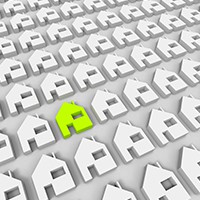Last updated: April 19 2023
Tax Tip: Reporting Income and Expenses from Rental Properties

Did you know that almost 8% of Canadian families have recently declared rental income on their returns and that the highest number of those are from the Vancouver area – where over 11% of families report rental income? This is from a Stats Canada study released in November of 2022, which also notes that the income was not high – a median amount of $2,750 in 2020. However, the audit potential is high. Here’s what you need to know to satisfy the tax auditor:
Declaring Income. Income resulting from the rental of a home, apartment, condo, etc., is considered to be rental income for tax purposes. The net amount, after expenses, is reported on line 12600 of the tax return and the detail is reported on Form T776 Statement of Real Estate Rentals.
Unlike most unincorporated business ventures, which can generally choose a non-calendar fiscal period, net rental income must be reported on a calendar year basis. And there are several  specific rules which differentiate the reporting of net rental income from net business income:
specific rules which differentiate the reporting of net rental income from net business income:
- Net profit from rental income does not qualify for Canada Pension Plan contribution purposes, as business income would.
- Capital Cost Allowance (CCA) may be taken on capital assets related to rental property, similar to the reporting on business property. But, there is a further restriction on the maximum CCA claim on rental properties. A rental loss cannot be created nor increased by claiming CCA on rental assets. Further, this rule applies collectively to all rental properties owned by the taxpayer and not to each property individually. Therefore, a taxpayer who has rental income after CCA on one property may claim CCA on another property to create a loss on that property so long as there is no net rental loss on the properties collectively.
- First-year CCA claims for most assets a tripled for assets purchased after November 20, 2018, and before December 31, 2023. For capital assets acquired for rental purposes, this will mean the maximum claim for CCA in the year of acquisition is triple the normal claim. For Class 1, the maximum claim would be 6% of the cost, and for class 8, the maximum claim would be 30% of the cost. These rates apply to capital improvements as well as new capital assets. Such enhanced claims will still be limited to the rule that restricts the creation or increase of a rental loss.
- Rental assets (other than buildings) purchased in 2022 (but before 2025) may be designated as immediate expensing properties, and CCA rates of 100% may be claimed.However, again these DIEP claims are still limited so as not to create or increase a rental loss.
It’s best to consult with an experienced tax specialist to ensure these options are property reported but also projected into the future, when other tax consequences can occur – such as recaptured depreciation, capital gains or losses or in some cases, the requirement to file the Underused Housing Tax Return.
For more information and the opportunity to earn a professional certificate to help others in this increasingly complex area of tax law, join us at the May 24, 2023 CE Summits.
